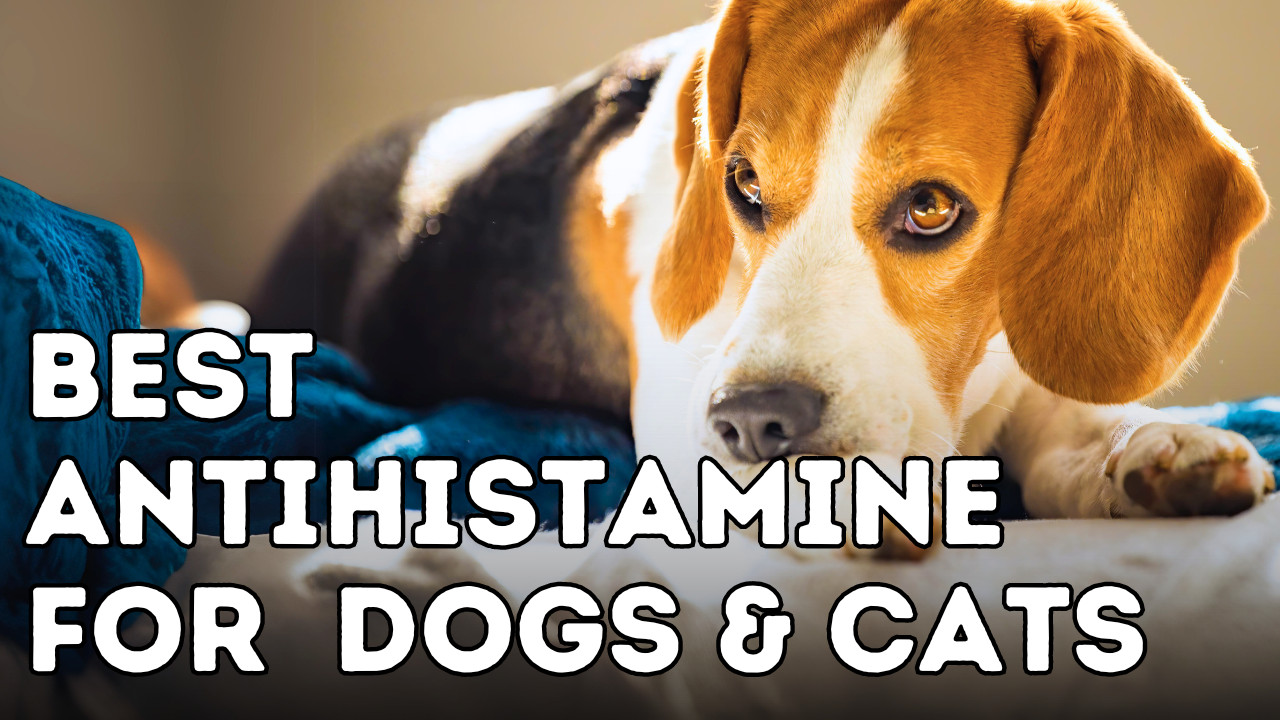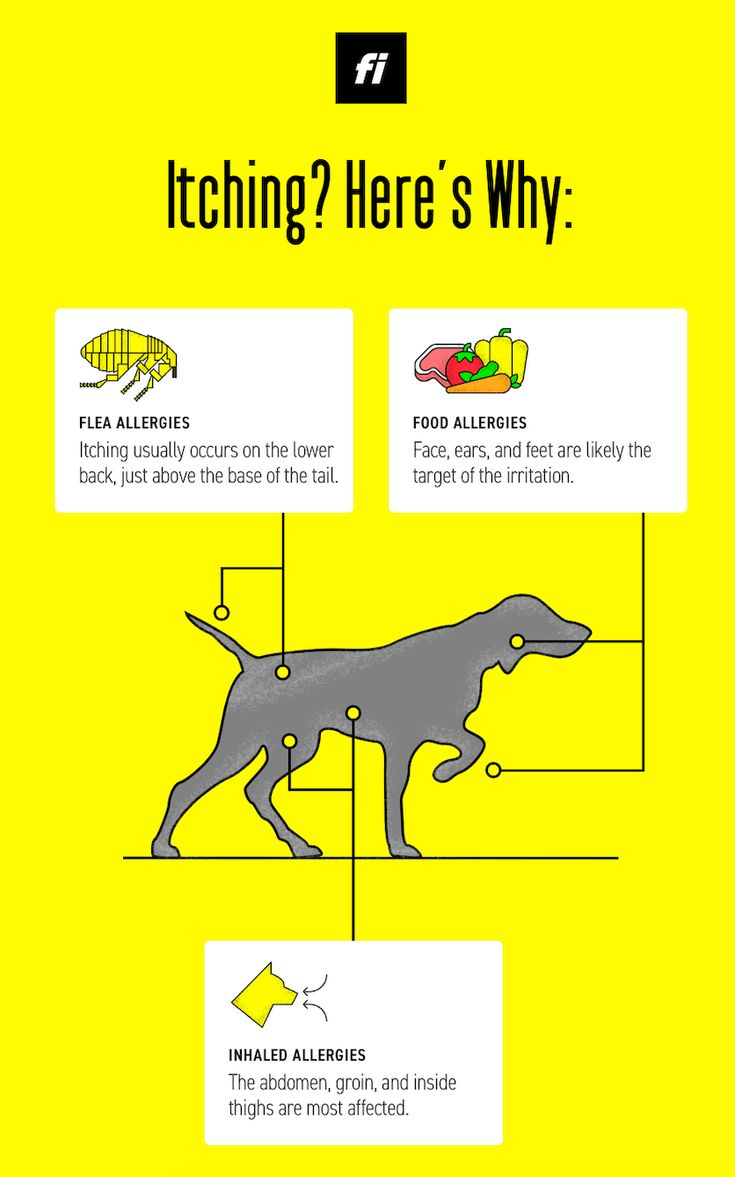Best antihistamine for itchy dogs and cats

Constant scratching can be maddening 🙁 The most common reasons our pets chronically scratch is due to allergies.
Managing allergies is best done in multiple ways, such as adding in a natural antihistamine in the form of Quercetin; it’s a bioflavonoid found in apple peels, red onion etc…
We now have a Quercetin supplement which has been getting some great reviews from pet parents with itchy pets!
Combat Allergies and Inflammation Naturally with Dr. Jones’ Ultimate BioActive Quercetin!

Join Dr. Jones LIVE: Learn How Probiotics Can Help Your Pet Overcome Common Health Problems!

What is Cetirizine?
Cetirizine, known by its brand names Zyrtec® and Reactine®, is an antihistamine commonly used in veterinary medicine to treat pruritus (itching) associated with atopic dermatitis, urticaria (hives), and insect-bite reactions in both cats and dogs. While it’s often prescribed, it’s important to note that its use in pets is considered ‘off-label’ or ‘extra-label,’ which is quite common in veterinary medicine. In these situations, it’s essential to follow your veterinarian’s instructions closely and be mindful of any potential cautions.
How Is Cetirizine Given?
Cetirizine is administered orally, either in tablet form or as an oral syrup. You can give it with or without food, but if your pet appears sick or vomits after receiving the medication, try offering it with a small amount of food to ease digestion.
This medication takes effect quickly, typically within 1 to 2 hours, and you should notice an improvement in your pet’s symptoms soon after.
What If I Miss Giving a Dose?
If you’re administering cetirizine twice a day and miss a dose, simply give the next dose at the scheduled time. If you’re giving it once a day, offer the dose as soon as you remember, but do not double up or give extra doses. Always return to the regular schedule after the missed dose.
Potential Side Effects of Cetirizine
Cetirizine is generally well-tolerated by pets and doesn’t typically cause side effects. However, some dogs may experience vomiting or increased salivation. In higher doses, small dogs and cats might show signs of drowsiness. If you notice any severe or worsening side effects, contact your veterinarian immediately.
Since cetirizine is a short-acting medication, it should stop working within 24 hours. However, if your pet has liver or kidney disease, the effects may last longer.
Risk Factors for Cetirizine
Avoid using combination products that contain pseudoephedrine in dogs and cats, as these can be harmful. Also, cetirizine should not be used in pets with known hypersensitivity to it or hydroxyzine.
Use cetirizine with caution if your pet has:
- A seizure disorder
- Difficulty urinating or signs of constipation
- Thyroid issues, enlarged prostate, heart, kidney, or liver disease
- Glaucoma
Dosage Guidelines
For dogs and cats, the standard dosage is 5mg per 10 lbs of body weight, given once daily. The tablets typically come in 10mg, so for a 10 lb dog or cat, you would give half a tablet.
Many pet parents are finding cetirizine to be one of the most effective antihistamines for treating allergy flare-ups. It has fewer side effects than Benadryl and seems to be a much safer over-the-counter option. Additionally, it works even better when combined with essential fatty acids, such as krill oil.
As someone who has experienced allergies myself, I wish I had cetirizine on hand a few days ago! Though I used Benadryl, which helped, cetirizine would have been a better choice since it’s safer and doesn’t cause drowsiness.
Natural Alternatives for Your Itchy Pet
If you’re looking for a natural solution to your pet’s itching, I recommend our whole plant extract option. It combines all the beneficial parts of the plant, and many pet parents have seen great results with it.
Combat Allergies and Inflammation Naturally with Dr. Jones’ Ultimate BioActive Quercetin!

As a bonus for signing up for my Probiotics Webinar, you’ll receive a full copy of the webinar, along with all the slides. This is only available to those who register, so don’t miss out!


I have a Lab/pit mix and a Mini Dachshund. I’m having horrible skin problems with the Lab and itchy with the Doxie. The Lab has bumps that are dry and when I scratch them off the hair pops off with it. The Doxie has bumps around the ears and on the flap. He is also long haired.
They despise fish oil. The flax oil I just started them on a week ago. I make thier food. I was cooking a mostly stew beef w/liver and chicken with carrots sweet potatoes and blueberries cooked in coconut oil at low heat cooking the beef rare.
Now I went to Lamb/gound, turkey, carrots,sweet potato,blueberries spinach. I give them googipet vitamins. And EFA.
Not getting any better doc. The lab weighs 65 and the doxie 20.
Any help would be appreciated.
Thanks Bob C.
You are taking good care of your pet and we appreciate it, we do have articles for ear skin issue:
SIGNS
Most pet owners can easily tell if their dog has an ear infection by looking into and their dog’s ear. A normal ear is light pink, not tender and easy to examine. In dog ear infections you will see a foul-smelling black, yellow or brown discharge. The ears may be very red and tender.
CAUSES
Ear Infections
Most pet owners can easily tell if their dog has an ear infection by looking into and their dog’s ear. A normal ear is light pink, not tender and easy to examine. In dog ear infections you will see a foul-smelling black, yellow or brown discharge. The ears may be very red and tender.
Most ear infections are caused by an underlying allergy. Some are caused by water in the ear after bathing or swimming. Dogs with large floppy ears, such as Basset Hounds, are prone to infections as their ear canals have poor air circulation, trapping moisture and allowing bacteria and yeast to grow.
Dogs with ear infections caused by yeast usually have a black discharge; this is commonly second to an allergy. Dogs with bacterial ear infections often have an organism called Staphylococcus; in rare cases a more serious infection is caused by a bacteria called Pseudomonas.
Ear Mites
Ear mites are known as Otodectes cynotis, and they are a relatively common parasite of dogs and cats. Most pets with infected ears do not have mites, so it is important to properly diagnose them before you begin to treat your pet; you don’t want to be using ineffective remedies for the wrong condition. Symptoms of ear mites include itching, head shaking, scratching of the ears, but differing from other ear conditions, ear mites produce thick black debris. Most ear mite infections occur in cats.
The entire life cycle of ear mites is within the ear canal; they do not burrow into the ear but stay on the surface. The life cycle of a mite is approximately 3 weeks; the female mites can lay more eggs after 3 weeks to continue the cycle. The mites are very contagious and easily spread from animal to animal through direct contact.
SOLUTIONS
MITES. The easiest treatment is to visit your veterinarian and get a topical conventional anti-parasitic medication. I have found Revolution (Selamectin) to be very effective; it is applied topically between the shoulder blades, and lasts for one month. Other conventional medications that work include Acarexx, (topical ivermectin), and Milbemite, (topical milbemycin oxime).
CLEAN THEM. Apple Cider Vinegar is naturally antibacterial and antifungal, and will help with most cases of ear infections. I prefer a 1:1 rinse of ACV and warm water – fill the ear canal up with the solution, rub the base of the ear to mix it well, and wipe out the excess with a cotton ball. This can be repeated twice a week. *If your dog or cat has red, open wounds, do not use this as it will be painful.
HEALING OILS. This is especially helpful if your pet’s ears are inflamed and difficult to touch. You can use a mixture of 1 tablespoon of Olive Oil combined with 1 capsule of Vitamin E and insert that into your pet’s ear. Let it soak for 5 minutes, then rub the base of the ear well and wipe out excess debris with a cotton ball.
BUROW’S SOLUTION. This is one which I discuss for use in Hot Spots, but it can also be used for ear infections and ear cleaning. It is a solution of aluminum acetate in water. It is used as an astringent wet dressing to relieve inflammatory conditions of the skin, such as swelling, allergies and bruises. Burow’s solution has antibacterial effects, and will inhibit the growth of bacteria commonly found in ear infections. Apply 5-6 drops in both ears, cleaning twice daily.
ALLERGY DIET. For dogs that get recurring ear infections it is important to try a less allergenic diet. It should include a completely different protein with minimal added ingredients. One example commercial diet is made of fish and sweet potato. See the Food Allergies section for recipes for homemade diets.
BIOFLAVONOIDS. These are the wonderful group of structures found in the pigment of fruits and vegetables. Quercetin has been effective for people with allergies and may be effective in dogs. The dose is 25 mg per 10 lbs of body weight daily.
FATTY ACIDS. These are a must for any allergy that triggers recurring ear infections. Ground flax for dogs (1 tsp per cup of dog food) or flax oil (1000 mg per 10 lbs of body weight), and flax or fish oil for cats (1000 mg per 10 lbs).
VITAMIN C. This may help your pet, and is worth a try. It suppresses the product released from cells in the body that causes itching (histamine), and is an antioxidant. Start with a low dose of 100 mg twice daily per 10 lbs of body weight.
ANTIOXIDANTS. Vitamin E may help: the Vitamin E dose is 100 IU per 10 lbs of body weight once daily.
ANTIHISTAMINES. Benadryl is the most commonly used antihistamine. It is given at a dose of 1 mg per pound of body weight, 2-3 times a day. Cats respond well to Chlor-Tripolon at 2 mg, 2-3 times a day. It is best to consult your veterinarian before using these medications. It often takes 14 days of using these to see if they are helping.
ACUPRESSURE:
Acupressure appears to be effective for some of those itchy and scratchy pets. Press one or more of the points for 1 minute three times a day:
LI4. Found on the web of the dewclaw, inside the front leg.
LI11. Found on the outside of the front leg, at the elbow.
HERBAL:
LESSEN THE INFLAMMATION. Most ear infections produce red, inflamed ears, so it is important to decrease the inflammation. ALOE or CALENDULA essential oil can be applied topically in the ears twice daily to decrease inflammation.
HERBAL INFUSION. Another oil infusion consists of: OREGON GRAPE, MARSHMALLOW AND GARLIC: soak the dried herbs overnight in olive oil- this can also be mixed with Vitamin E.
TREAT THE INFECTION. GARLIC, SAGE and THYME have antibacterial and antifungal properties. One treatment is to soak garlic cloves overnight with Calendula oil. Remove the garlic and instill the calendula-garlic mixture twice daily.
HOMEOPATHIC:
SILICA. Useful for dogs with recurrent ear infections. Most have excessive debris. The typical dose is 30C twice daily.
PULSATILLA. For more sudden ear infections and injuries. Dose 30C every 4-6 hours for 2-3 days.
SEPIA. Has been used in cats with chronic ear infections that don’t typically respond well to conventional meds. The dose is 6C once daily for 4 weeks.
I hope it’s okay to include a link here, but I wanted to ask about the use of Reactine Pseudoephedrine for pets, especially in relation to the information provided in the article about antihistamines for itchy dogs and cats. I found some details on its uses and side effects at https://pillintrip.com/medicine/reactine-pseudoephedrine, and I’m curious if this combination is safe and effective for treating allergies in pets. Thank you for your insights!
No—Reactine Pseudoephedrine (cetirizine + pseudoephedrine) is not safe for pets. Even though Dr. Jones recommends pure antihistamines like quercetin or cetirizine, the combination with pseudoephedrine is strongly discouraged for dogs and cats.